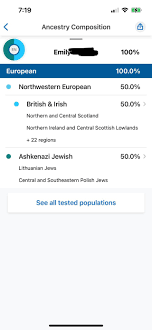Unlocking Your Genetic History with 23andMe

Introduction
In recent years, direct-to-consumer genetic testing has gained vast popularity, and one of the leading companies in this field is 23andMe. This service offers customers insights into their ancestry, health risks, and genetic traits by analysing their DNA. As healthcare continues to evolve with technology, understanding genetic information has become crucial for individuals looking to make informed decisions about their health and family history.
What is 23andMe?
Founded in 2006, 23andMe has revolutionised personal genomics by providing an accessible way for people to explore their genetic makeup. Users submit a saliva sample, which is then analysed in a laboratory. Within a few weeks, customers receive a comprehensive report detailing various aspects of their DNA, including ancestry composition, potential health risks, and traits ranging from physical characteristics to predispositions for certain conditions.
Recent Developments and Events
As of late 2023, 23andMe has continued to expand its capabilities, introducing new features that allow individuals to gain even deeper insights into their genetics. In October 2023, the company launched a revised version of its health reports that not only identifies genetic risks for diseases such as Alzheimer’s and Parkinson’s but also provides actionable steps and lifestyle advice tailored to each individual. This enhancement focuses on fostering a proactive approach to health management.
Furthermore, 23andMe has been actively involved in research partnerships, collaborating with major pharmaceutical companies to use genetic insights for drug development. This has the potential to lead to more targeted therapies and personalised medicine approaches, significantly improving healthcare outcomes.
Understanding Privacy and Ethical Concerns
While the benefits of services like 23andMe are significant, there are also concerns about data privacy and the ethical implications of genetic testing. In response to these worries, the company has implemented robust data security measures and offers users the option to select what information is shared, particularly regarding research studies. Transparency about how genetic information is stored and used remains a priority for the company as it navigates these complex issues.
Conclusion
As 23andMe continues to innovate in the field of genetic testing, it provides a valuable service that can enhance individuals’ understanding of their ancestry and health. With advancements in technology and research partnerships, the future appears bright for personalised genetics. However, consumers must remain informed about the implications of sharing their genetic data to ensure a balance between the advantages of such insights and the importance of privacy. Ultimately, 23andMe represents an exciting frontier in personalised health and wellness.









